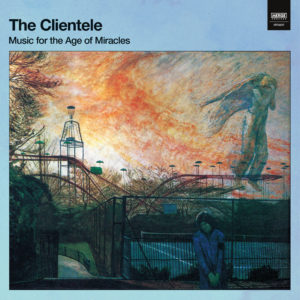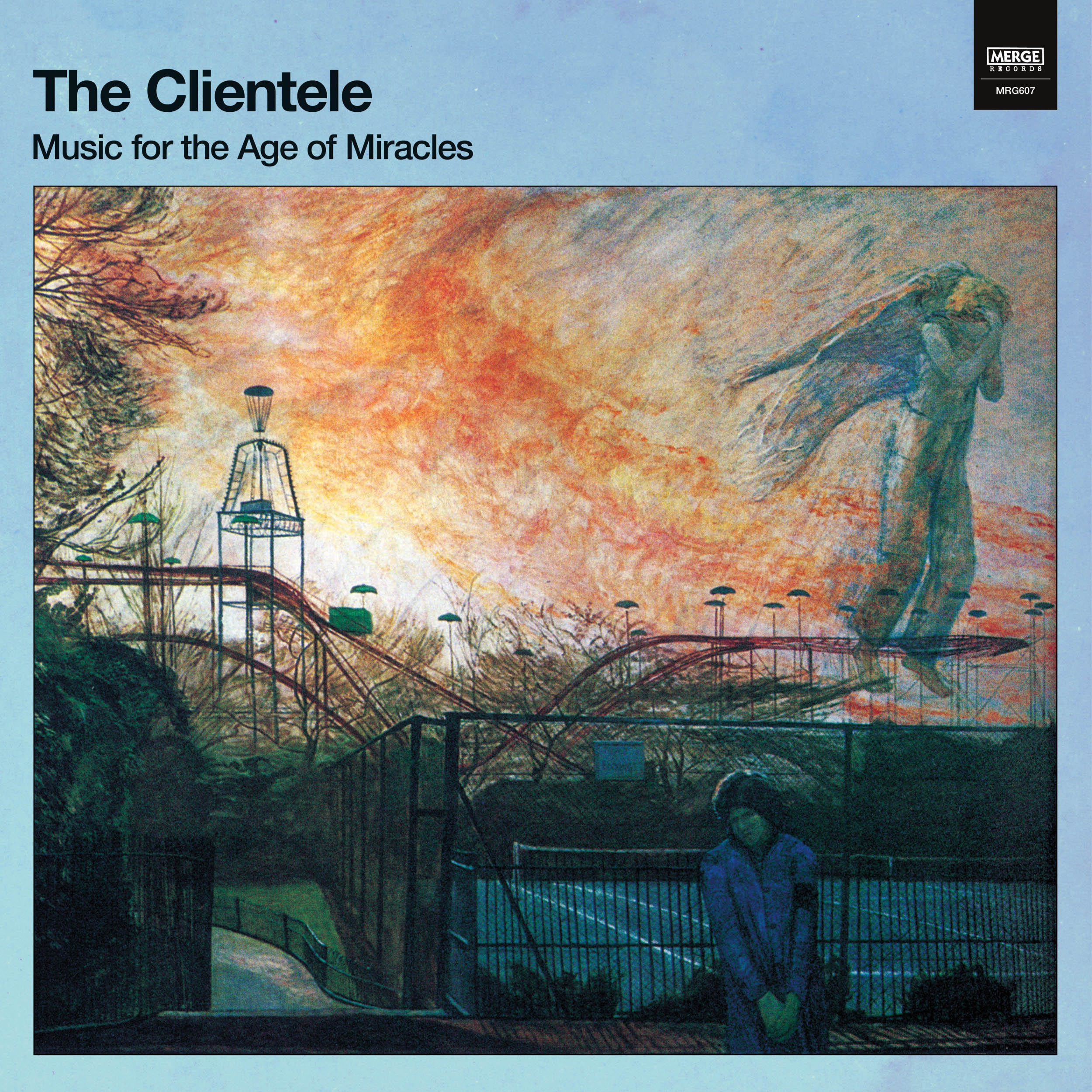The Clientele
Music for the Age of Miracles
MERGE
8/10
Despite, or maybe because of, The Clientele’s unabashed Englishness, the erudite folk-pop group have always fared very well over here in the States. Throughout their initial run, their foggy vistas and rain-drenched melodies seemed to epitomize a kind of melancholy that filled a void left by Donovan’s folk-y voice and Felt’s sparkling guitar moments, while echoing Belle and Sebastian’s most teary-eyed laments. Songwriter Alasdair MacLean writes lyrics that could almost be a Mad Libs–style British word game. “It’s (time of day) at (place in England) and it’s (winter weather verb) again.” Which is perfectly OK—great bands from The Ramones to The Smiths have had a lyrical template to work from. Whether the group felt that template had exhausted itself by their last album, Minotaur, in 2010, it’s hard to say. Their behavior—announcing a soft retirement and MacLean’s reemergence as one half of Amor De Días—seemed to signal the end. But then, like a softly spoken, scarf-clad T. Rex creeping up behind you, there was movement in the Clientele camp. Vibrations. A one-off gig. Reissues. More one-off gigs. And now—seven years after Minotaur—a full album.
Music for the Age of Miracles was shaken to fruition by MacLean’s run-in with an old friend, Anthony Harmer, who just happened to have taken up mastering the santoor (an Iranian dulcimer) since they had last seen each other. That instrument’s melodic, metronomic qualities anchor many of the new songs, providing a freshness and a spark that makes this album the group’s finest since 2005’s Strange Geometry. Singles “Lunar Days” and “Everyone You Meet” have that hushed, pure pop quality that bends and bleeds in quiet. MacLean’s voice is an amplified whisper, but he can stretch notes to convey something alchemical that makes him sound practically like Van Morrison compared to a lot of whisper-singing dream-pop acts that might mine a similar territory. The sound of the santoor stabilizes pieces like “Falling Asleep” and “Constellations Echo Lanes” and gives them an Eastern heft—but it’s only one color (excuse me: colour) in the band’s widescreen pop portraiture.









